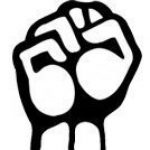Tag: israel
-
The absurdity of asylum in Israel
Last December some 200 African asylum seekers started a march from the open detention centre Holot in the south of the country towards the Knesset, the Israeli parliament in Jerusalem. ‘We are not afraid to march, sun, rain or snow. We’ll march to Jerusalem to ask the government for our rights. We can no longer…
-
Israel-Palestine: Banal Apartheid
On 28 February, an Israeli activist with Checkpoint Watch, a movement of Israeli women peace activists who oppose the Israeli occupation and the denial of Palestinians’ rights to move freely in their land, and who conduct daily observations of Israeli army checkpoints in the occupied West Bank, was at the bus terminal in Oraniot on highway…
-
After Gaza, Again
Of course I am happy about the ceasefire between Israel and Hamas. After eight days of pounding Gaza’s population, and the barrage of rockets on Israeli civilians, any cessation in hostilities is welcome. While I am fully aware of the horrors faced by friends in Tel Aviv and Jerusalem, this attack has been so much…

You must be logged in to post a comment.